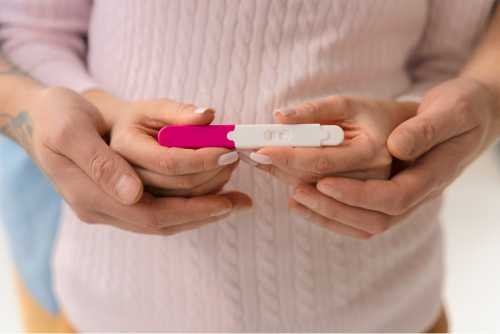Fertility Preservation for the 30+ Crowd
Fertility Preservation For Women and How it Makes a Difference
For many women today, the idea of having a child at a later stage in life is becoming more common, natural, and intentional. Careers are evolving, priorities are changing, and life choices have become more flexible than ever before. But biology still works on its own timeline, and fertility tends to decline gradually throughout the 30s. This is where fertility preservation steps in, giving women the chance to plan their future while keeping their options open. If you are someone above the age of 30 and want to secure your ability to conceive later, fertility preservation is a practical and empowering solution.
Many women in their thirties feel unsure whether they want a child immediately, but they do want to keep the possibility open. They may be waiting for the right partner, focusing on professional goals, prioritizing financial independence, or simply wanting more time before stepping into motherhood. No matter what the reason may be, preserving your fertility ensures that you do not have to race against the biological clock. This reassurance can remove a lot of stress and help you make decisions with confidence.
Fertility preservation has become more advanced, more accessible, and far more successful than it was a decade ago. With modern reproductive technologies like egg freezing, embryo freezing, and ovarian tissue preservation, women can take control of their reproductive future in a way that aligns with their personal and professional life. And if you are in Bangalore, fertility preservation options are widely available at centres like Ayaansh Hospital, where scientific precision and personalised care come together.
The beauty of fertility preservation lies in the freedom it gives. It allows you to choose motherhood when you are truly ready, not when biology decides for you. Whether you want to start your family later, safeguard your fertility before a medical treatment, or simply have peace of mind, fertility preservation can be one of the most important decisions you make for your future. This blog will walk you through everything you need to know about fertility preservation after 30, the techniques available, what to expect, and how the right fertility centre in Bangalore can support you on this journey.

Why Fertility Preservation for Women Matters After 30
- Natural decline in egg count
Women are born with a fixed number of eggs, and this reserve slowly reduces over time. After 30, the decline becomes more noticeable, which can affect future fertility. - Egg quality changes with age
Egg quality is closely linked to age. As you enter your mid and late thirties, the chances of chromosomal abnormalities increase, which can impact conception and pregnancy. - Pregnancy becomes more challenging later
Many women over 35 may face difficulty conceiving naturally. Fertility preservation helps secure healthier eggs while you are still in your reproductive prime. - Delaying pregnancy for personal reasons
Career, financial planning, personal readiness, or waiting for the right partner are common reasons for delaying pregnancy. Preserving fertility allows flexibility. - Protection before medical treatments
Treatments like chemotherapy, radiation, or ovarian surgeries can affect fertility. Preservation allows women to safeguard their reproductive options beforehand.
Types of Fertility Preservation Options Available
Egg Freezing
Egg freezing is one of the most popular options for women above 30. It involves stimulating the ovaries to produce multiple eggs, retrieving them, and freezing them at very low temperatures so they remain healthy for future use. Since egg quality reduces with age, freezing eggs in your early or mid-30s can increase the chances of successful pregnancy later. This method gives women complete reproductive autonomy and allows them to use the eggs whenever they decide.
Embryo Freezing
Embryo freezing involves fertilizing the retrieved eggs with sperm before freezing them. This option is suitable for couples who are planning future pregnancy together. Embryos generally have a higher survival and implantation rate compared to frozen eggs, which is why many couples choose this method. It also works well for those undergoing fertility treatments like IVF and wish to save extra embryos for future use.
Ovarian Tissue Freezing
This method involves removing and freezing small pieces of ovarian tissue that contain immature eggs. The tissue can later be reimplanted to restore fertility. It is often recommended for women undergoing urgent medical treatments that may harm the ovaries. This option is especially useful when egg or embryo freezing is not possible due to limited time.
Sperm Freezing (for couples)
While this method is mostly for men, it becomes a part of the fertility preservation process for couples. If a partner is unavailable for future cycles or undergoing medical treatment, sperm can be frozen for use later. It is simple, quick, and highly effective, making it a helpful option in long-term fertility planning.
Ovarian Suppression
Hormone medications are sometimes used to temporarily pause ovarian function during treatments like chemotherapy. Although the success rate varies, ovarian suppression may reduce the risk of egg damage. It is often used together with other preservation methods for better results.
How Fertility Preservation Works: Step-by-Step Process
Step | What Happens | Why It Matters |
Consultation | You meet a fertility specialist who reviews your health, menstrual cycle, and future plans. | Helps decide the best fertility preservation option for your needs. |
Ovarian Stimulation | Medications are given to help the ovaries produce multiple healthy eggs. | More eggs increase the chances of successful freezing and future pregnancy. |
Egg Retrieval | A short procedure is done under sedation to collect mature eggs. | Retrieved eggs are immediately checked and prepared for freezing. |
Freezing Method | Eggs or embryos are frozen using a method called vitrification. | Keeps them healthy for years without losing quality. |
Who Should Consider Fertility Preservation After 30?
- Women focusing on career growth
If you want more time to reach professional milestones, fertility preservation keeps future family plans intact. - Women not ready for motherhood yet
Personal readiness is important for parenthood. Preservation gives emotional and physical flexibility. - Women with family history of low ovarian reserve
Genetic factors can affect fertility. Preserving eggs early can prevent future complications. - Women with medical conditions
Endometriosis, autoimmune disorders, or cancer treatments can impact fertility. Preservation offers security. - Couples planning delayed parenthood
Embryo or sperm freezing is useful when both partners prefer to wait before starting a family.

Why Ayaansh Hospital is the Best Fertility Centre in Bangalore
Ayaansh Hospital stands out as one of the most trusted names when it comes to fertility preservation in Bangalore. The hospital combines advanced reproductive science with personalized emotional care, which is essential for women in their 30s planning their future fertility. The fertility specialists at Ayaansh Hospital have extensive experience in egg freezing, embryo freezing, and ovarian tissue preservation, making them capable of guiding patients through each step with clarity and comfort.
What makes Ayaansh Hospital truly exceptional is its world-class laboratory equipped with modern freezing techniques like vitrification, which protects eggs and embryos with high survival rates. The hospital follows a patient-centric approach where each treatment plan is customized to the woman’s age, medical history, egg reserve, and long-term goals. As a well-known fertility centre in Bangalore, Ayaansh focuses on transparency, safety, and scientific precision, ensuring that women receive the most reliable care possible. Whether you are preserving your fertility for personal, professional, or medical reasons, Ayaansh provides the ideal environment, advanced technology, and supportive team to help you make confident decisions about your reproductive future.
Conclusion
Fertility preservation is more than just a medical procedure. It is a thoughtful and empowering choice for women, especially those above 30, who want to plan their future on their own terms. As life becomes richer with new opportunities, responsibilities, and goals, it is natural to want the flexibility to start a family when the timing truly feels right. With options like egg freezing, embryo freezing, and ovarian tissue preservation, women today can secure their reproductive health with confidence and clarity.
This field of reproductive medicine has seen remarkable advancements, making the process safer, simpler, and more successful than ever before. Whether you are focused on your career, waiting for the right partner, dealing with a medical condition, or simply wanting more time, fertility preservation ensures that you still have the chance to experience motherhood when you are ready. It takes away the pressure of the biological clock and replaces it with reassurance and peace of mind.
If you live in Bangalore, fertility preservation services are easily accessible, especially at dedicated centres like Ayaansh Hospital. As one of the leading fertility centres in Bangalore, Ayaansh offers modern technology, expert guidance, and a supportive environment that helps women feel safe and informed throughout their journey. Their personalized care makes it easier for women to take this important step confidently and comfortably.
Your fertility is a precious part of your health, and preserving it is an investment in your future. With proper guidance and the right fertility centre, you can make decisions that support both your present and your future dreams. Whether you choose to start a family soon or later, fertility preservation ensures that you remain in control of your own timeline. It is not just a medical choice, but also a step toward creating the life you envision for yourself in the years ahead.


